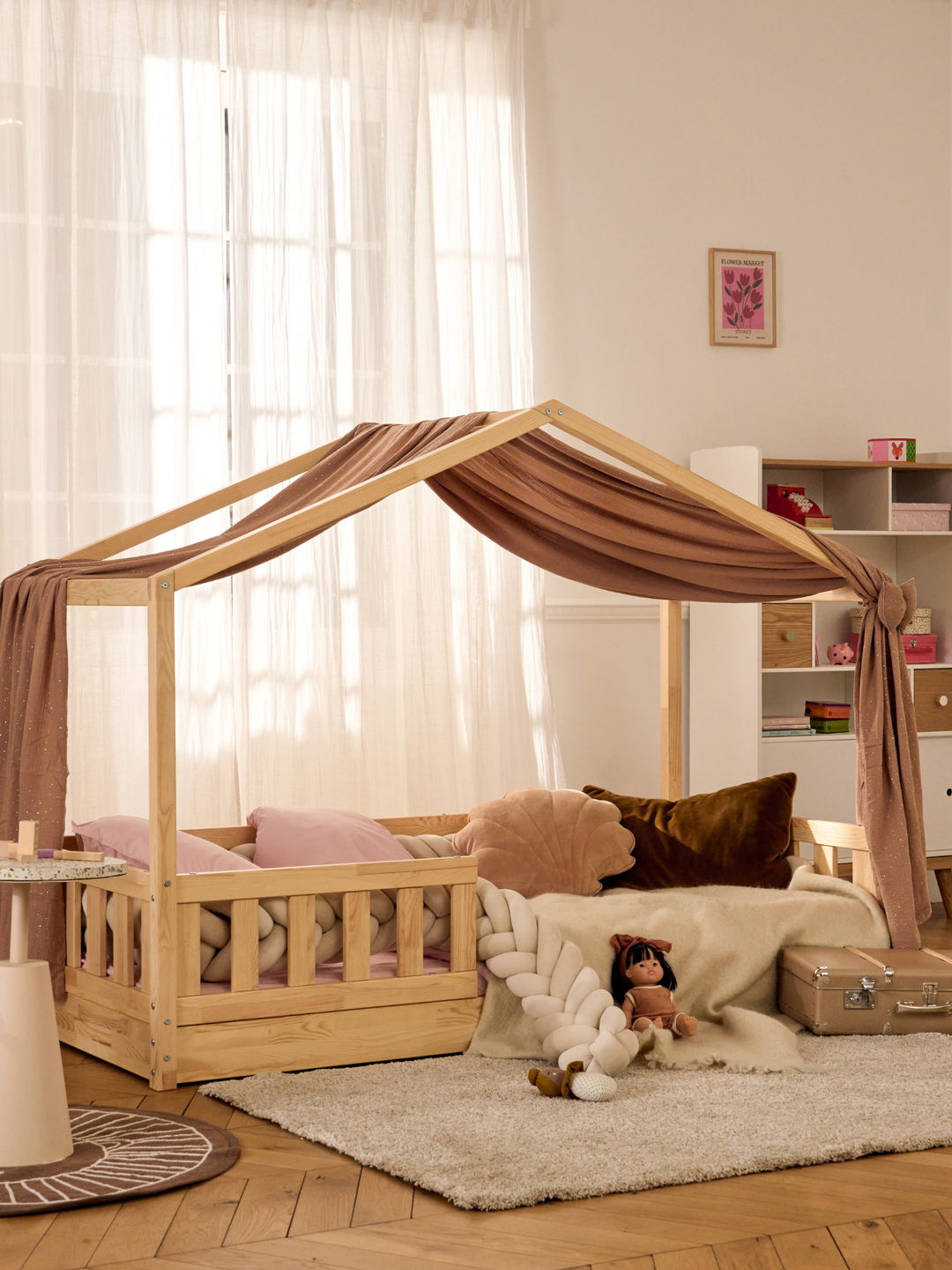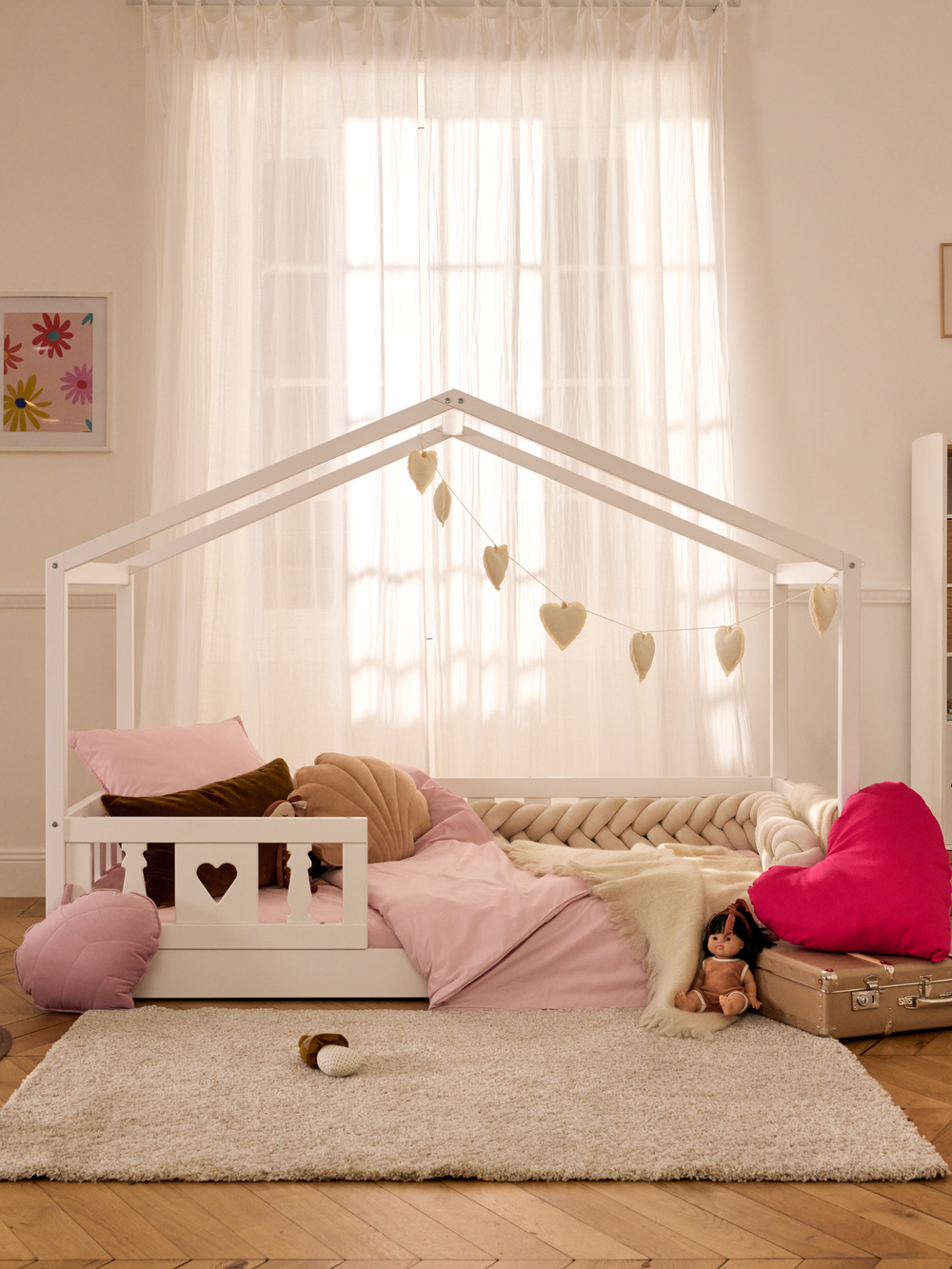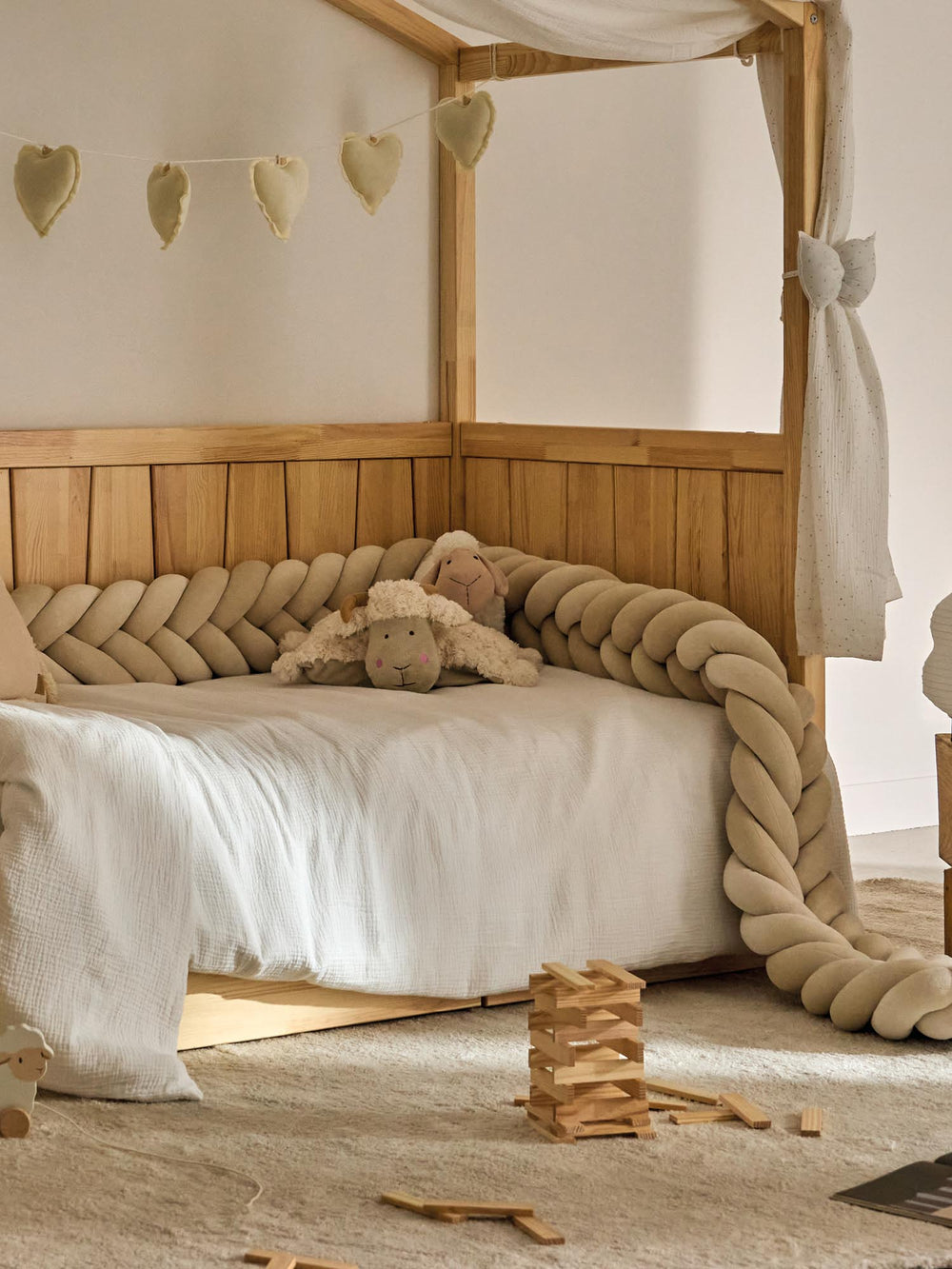L'espace personnel d'un enfant est son sanctuaire ; c'est un lieu sacré où chaque élément a un impact sur son épanouissement et son bien-être. N'est-ce pas fascinant de penser que le choix de l'emplacement idéal pour un lit cabane peut même influencer la qualité de son sommeil ? C'est là que la psychologie environnementale entre en jeu, embrassant l'idée que notre environnement façonne notre comportement, nos émotions et nos habitudes de sommeil. Dans les lignes qui suivront, nous explorerons comment l'agencement et l'emplacement du lit cabane peuvent contribuer à de meilleures nuits pour nos petits. Nous analyserons des études sur les bienfaits d'un emplacement soigneusement choisi, appuyés par les témoignages de parents. Puis, des conseils pratiques seront donnés pour aider à choisir l'endroit le plus propice et, finalement, nous verrons en quoi l'aménagement global de la chambre peut devenir un pilier du développement et du sommeil réparateur de l'enfant.

Principles of environmental psychology applied to the nursery
The influence of the environment on sleep
Does your child sleep like a log or wake up frequently in the middle of the night? Have you ever thought that the layout of his or her bedroom might be to blame? Visit environmental psychology teaches us that our environment has a considerable impact on the quality of our sleep. A cabin bed, for example, strategically placed in a bedroom, can transform restless nights into a peaceful haven for your little treasure. In the quest for the perfect sleep for our toddlers, we tend to underestimate the importance of bed placement. However, according to Maria Montessori proximity to the ground and a absence of visual obstacles are as much about autonomy as they are about peaceful sleep. No monsters under the bed here! Instead, gentle, secure dreams in a space that respects their fundamental need to explore.Criteria for a good location for a cabin bed
So where should you place this famous cabin bed to optimize its benefits for your child's sleep? Here are a few tips:- simplicity and safety: a mattress at ground level without superfluous elements such as ladders or drawers;
- freedom: leave enough space around the bed for your child to climb in and out unaided;
- sensibilité aux rituels : placez le lit dans une zone qui permette d'établir des rituels apaisants avant le coucher tout en veillant à ce que ces derniers ne deviennent pas une béquille indispensable au sommeil.
Does the location of the cot bed influence the child's sleep?
Studies and research on bed location and sleep quality
Have you ever wondered about the mysteries that govern your child's sleep? Why, on some nights, Morpheus' embrace seems so far away, while on others it envelops your little one in a gentle, effortless torpor? Recent studies have looked into this question and highlighted the crucial role played by the location of the bed in the bedroom. But it's also the very design of the cabin bed that seems to be a vector of nocturnal well-being. Le open, reassuring design of a Montessori hut bed encourages a sense of autonomy in children. It creates a secure bubble where little ones can retreat to find refuge in the arms of rest. This delimited cocoon becomes their own kingdom, where they reign over their nights and their dreams.Parents' testimonials and experiences
Have you ever heard the uplifting stories told by parents whose children have found refuge in a fairytale world thanks to their cabin bed? These testimonials abound and paint a convincing picture: carefully choosing the location of a cabin bed can radically transform a child's night-time routine. Many parents report a significant improvement in sleep duration and quality as soon as their child has started sleeping in it. personalized space. Some even mention how this choice may have positively influenced the socialization of their child. With friends invited to explore this little fortress, social interactions multiply within the room itself, contributing to the development of social skills both during the day and in the evening. Ultimately, it would seem that placing a cabin bed is not just a question of aesthetics or practicality; it's also a decision that touches on children's deepest intimacy and fundamental needs for growing up serenely. And have you thought about all this when choosing where to install this cosy nest for your treasure?Tips for choosing the best location for a cabin bed
Factors to consider when designing a nursery
Are you about to create an enchanting world for your child with a cabin bed? Perfect! But have you thought about all the elements that will make this space a true haven of peace? Here are a few tips for leaving nothing to chance:- accessibility and autonomy: make sure that the location you choose allows your child free access to the bed. The idea is to enable your child to get in and out of the bed unaided, thus promoting his or her independence;
- visibility: position the bed so as to offer an unobstructed view of the whole room, including the door. This contributes to the child's sense of security;
- safety: check that the bed complies with current European standards, and that it has the necessary railings to prevent any risk of falling.
Examples of optimized pitches for cabin beds
Need some inspiration to find the perfect location? Here are a few ideas for clever, tried-and-tested layouts:- in a large room, why not place the cabane bed in the center, like an island inviting adventure? This arrangement offers total freedom around the bed and stimulates creativity.
- for smaller spaces, positioning the bed against a windowless wall not only ensures safety, but also makes judicious use of the available space;
- some parents have chosen toorient the sleeping area towards the door, allowing their child to discreetly observe the outside world from his or her cozy refuge.
The impact of the bedroom's overall layout on the child's well-being
The relationship between bedroom layout and child development
Did you know that every object, every color and even the arrangement of furniture in your child's bedroom can have a positive influence on his or her development? In fact, a harmonious, well-thought-out environment is essential for stimulate intellectual, emotional and physical growth. Take the tree house bed, for example: more than just a place to sleep, it's a privileged space where your child can develop day by day. A refuge where they can dream, play and, above all, feel in control of their own little world. When you carefully choose the colors of the walls - avoiding overly bright hues that could disturb your child's sleep - or when you decide to avoid disturbing shadows, you're playing an active part in creating an atmosphere where your child can dream, play and, above all, feel in control of his little world. conducive atmosphere to her well-being. Imagine a room in soft tones, decorated with playful stickers rather than a large closet with mirrored doors that could cast strange shadows. Isn't this a subtle recipe for soothing the senses and encouraging peaceful sleep?How to harmonize the bedroom to promote restful sleep
Ah, sleep! That magical moment when our little ones recharge their batteries in preparation for tomorrow's adventures... But how can we ensure that their bedroom is truly conducive to this much-deserved rest? Here are a few tips: A well-balanced bedroom requires thoughtful choices:- orient the bed wisely: avoid facing west, which could lead to laziness or procrastination. Instead, face south or east, according to certain scientific studies and Ayurvedic beliefs;
- créer une ambiance douce : utilisez des rideaux occultants ou un ciel de lit foncé pour tamiser la lumière extérieure et offrir ainsi à votre enfant un cocon rassurant ;
- encourage independence: place the cot facing the door or so that your little one can see you approaching; this reinforces their sense of security.




